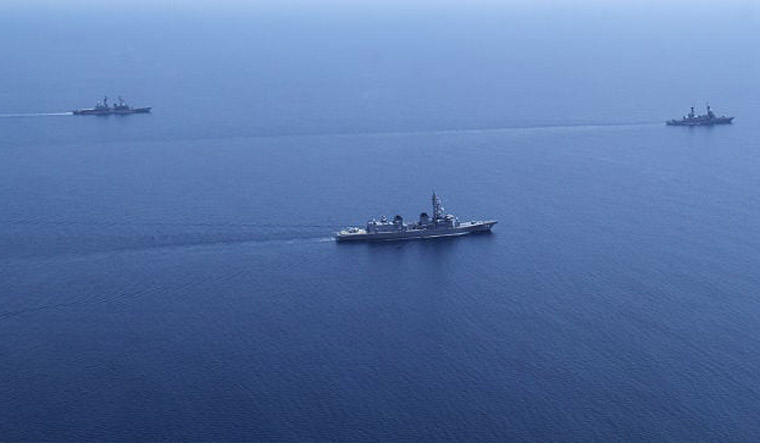It found a small mention in foreign secretary Vinay Mohan Kawatra's briefing to the media after the Quad summit between the four leaders of the US, Japan, India and Australia in Tokyo. A mention that the joint statement welcomed a new maritime domain awareness initiative, the Indo-Pacific Partnership for Maritime Domain Awareness (IPMDA), which is designed to work with regional partners to respond to humanitarian and natural disasters and combat illegal fishing.
The two words, illegal fishing, are clearly directed towards China which has dominance over fishing as it does over almost every sphere, in this region at least. The joint statement says that ``IPMDA will support and work in consultation with Indo-Pacific nations and regional information fusion centres in the Indian Ocean, south east Asia and the Pacific Islands by providing technology and training to support enhanced, shared maritime domain awareness to promote stability and prosperity in our seas and oceans. The IPMDA embodies what the Quad stands for: catalysing our joint efforts towards concrete results that help to make the region more stable and prosperous.''
They may call this an issue of prosperity, but the IPMDA has an undeniable security and strategic focus, too, and India will play an important role here. India opened the Information Fusion Centre for Indian Ocean Region way back in 2018, when the Quad had not yet been elevated to the level of summits of government heads. This centre, based in Gurugram, was set up to co ordinate with regional countries on maritime issues and act as a repository of maritime data. It has linkages with over 20 countries, and the Liasion Officers that each of these countries sends to the centre work directly with officers of the Indian Armed Forces. Among the various functions of the centre is to monitor all maritime traffic in the Indian Ocean, assisted with satellite data. With other such centres in the region also joining forces under the IPMDA, the aim is to monitor all maritime activities in the Indo-Pacific.
India has always made a strong pitch for a rules-based world order, with respect to international laws, including the UNCLOS or United Nations Convention on the Laws of the Open Seas. China has brazenly flouted the UNCLOS, which has brought it into tension with many of its neighbours including the Philippines and Vietnam.
Apart from keeping a strategic eye in the Indo-Pacific, clearly on China and its expansionist activities, the stated threat of illegal fishing is also a matter of concern. Securing fish is an important factor for the economy of maritime nations, and China, is reportedly responsible for 95 per cent of illegal fishing in the region. Its distant water fishing fleet reportedly has over 17,000 fishing vessels. Containing Chinese illegal fishing is a matter of concern, specially for the smaller countries in the Indo-Pacific Region, which do not have the wherewithal to trawl on the scale of the Chinese fishing fleet.
How successful the Quad endeavour will be in securing fish within the Indo-Pacific waters remains to be seen given that China has not given much care to international strictures in the past over any of its activities.





